Summary in English

Artists residence and Guest studio in Lyon
International Trade Law
by Pierre Alain Gourion and Georges Peyrard
Justice and its Double
Azouz BEGAG, Justice in da Buff
2. Reluctances towards photography
3. Travelling and bringing back
5. Establischment of the truth
6. Anybody ?
Patrice Giorda, a French painter
Pierre Alain Gourion, From Justice to Nudes
*
Pierre Alain Gourion, Poetry
Manhattan
Ben, LISTEN TO MY SONGS
*
Mariana Flores and Eduardo Cappussi
tango dancers
*
TRAVELLING
La belle France (for american people)
by Azouz Begag
(6) ANYBODY ? 
Justice in da buff
by Azouz Begag
(5) Establishment of the truth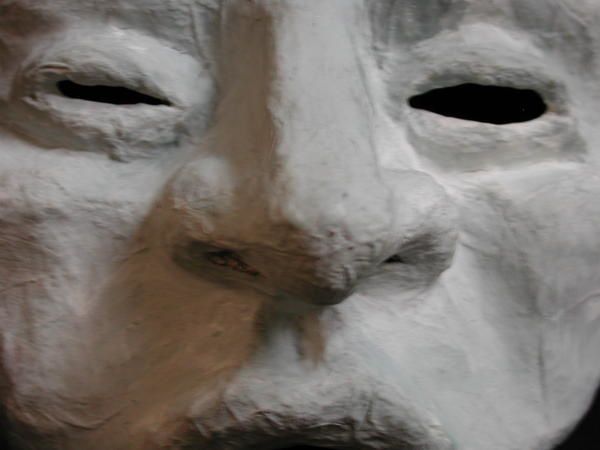
Here, in the North, everything has to be written. It was a whole new world for me. In the country where my cultural references come from, eloquence matters. Spoken words are more powerful than the written ones. For the act of marriage, old men of the spouses? families meet round the table and, using words, make the match. Then words are the characteristics of a sacred ritual. They are literally rooted in the mind of the person who says them and the one who hears them.
Justice in da Buff
by Azouz Begag
(4) Justice, Echo


Justice in da buff
by Azouz Begag
(2) 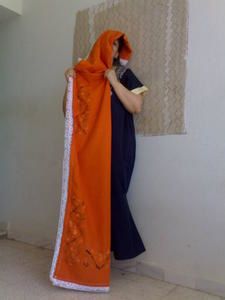




Travel a new world
Fly Marijuana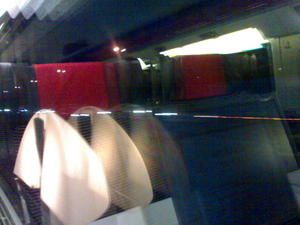
![]()


 J'ai regardé les publicités publiées par ce blog, et je me suis souvenu d'un poème écrit en anglais en 1989, lors d'un voyage aux Etats-Unis, patrie de la pub.
J'ai regardé les publicités publiées par ce blog, et je me suis souvenu d'un poème écrit en anglais en 1989, lors d'un voyage aux Etats-Unis, patrie de la pub.
Tout s'est mélangé, mélé : hier et aujourd'hui, rèves et réalités, droits et interdits, désespoirs et rèves cheap. Consommation de biens virtuels ou concrets. Le monde ne s'est pas arrangé depuis. Ben Hash.
Travel a New World
That is what
Advised
The advertisement from
The United States of
America
I tried
Took buses and planes
Plenty rides
Listened saw smelled
Talked a lot
Sun burnt me
and the men And the words
The problems touched me
Blacks jews poors talked to me

Skyscrapers frightened me
And the ways and the cars
and the strengh the money
Did I do my duty
Af well-thinking tourist ?
Do I know ?
But the famous new world
Witch has opened to me
Far from the postal cards
And the coca cola

![]()
Is the one of the dope








Travel a new world
Fly marijuana


I’m not set on one particular model: naked, not naked, beautiful, ugly . I don’t mind , I would put myself in the jurors’ shoes!
François La Phuong, Avocat
 Don’t shoot judges What a strange and difficult job it is to be a judge. At the very beginning of this project I had an idea which seemed natural to me: to take lawyers and judges as my clothed models, so complementary are those two professions in a democracy. No lawyers without judges, no defence without a man hounded by public wrath. No true legal system without cross-examination. And to the question which we are so often asked : - How can a lawyer defend such heinous criminals ? It is easy for us to answer by asking another question which elicits a positive answer : - Do you agree that every man, whatever he has done, has the right to be defended ? (13) 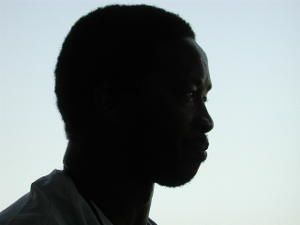 I had no trouble with the colleagues I contacted: after some explaining, they all, men and women, willingly agreed, often in a warm, amused and gratifying way. The reaction of the magistrate friends I contacted was quite different. One of them, albeit a former lawyer himself replied : - I only express myself through the judgments I pass ! Hell, this razor sharp answer left no room for comment. Mezzo voce, I thought to myself, with that hint of rebelliousness which characterizes lawyers whenever they come up against judges, an essential function of theirs, that his way of expressing himself somehow lacked variety and humour. But never mind. Another one, a former youth worker, now President of the Magistrates’ Court, explained that although he thought the project was fun, he couldn’t take part : - Can you picture me questioning or bawling out a sniggering prisoner who says to me: you’re the one who posed next to a naked woman, aren’t you ?  All right. Yet another, who has no hesitation in playing music at night with an Arab –oh my goodness!- explained to me by day that the obligation of restraint which applies to every public servant made my suggestion – tempting though he found it- impossible to carry out with judges. Maybe he was right : lawyers have more freedom and although they are bound by law to their professional order and confidentiality (which are meant to protect their clients and function and not them), they only have to answer to their clients and the President of their Bar in the case of professional misconduct.  (13) Alas, the America of Mr. BUSH and GUANTANAMO has not given the answer to this question that one might have expected from that democracy… It is being debated. | ||||
| So I had to make do with them, considering them to be symbols of the whole legal profession. That was the reason why my friend VERNERET and I wanted to photograph François La Phuong and his mug (this brilliant lawyer had a stroke which robbed him of the power of speech, he from whom words used to flow like water): he embodies a social function that is pivotal and present all over the world – wherever free defence, true journalism and multipartism exist, often threatened, an everlasting quest. The quest for democracy is never ending, that’s how it is and it will go on! Yet I would have liked to shoot a portrait of BURGAUD sitting on his chair, twisted, tortured, in front of his tormentors, our Members of Parliament and cameramen. On the left-hand page there would be lots of children naked in their lies and their false innate innocence. Paradoxes.  Stolen pictures It was at the flea market, one Sunday morning round about the year 2000. The stalls were shining with a thousand odds and ends, spare parts, printed circuits, socks, kitchenware, make-up, all kinds of exotic products from the technical Western world, from the Muslim Maghreb, from the depths of Africa. We were in France, in Algiers, in Mali. A colourful, loud-mouthed, buoyant rabble. I was shopping, some tea here, a box there, lipsticks for the models, why not this cheese-grater…  Around noon, I went to the local bistrot, next to the tent where the head of security, a huge mountain of a man, a bearded North African, an integrated fundamentalist cop, kept an eye on things. A pint of lager, and a merguez sausage, swallowed in haste. It was raining on the bar window, hey, why not take a shot of the droplets meandering all the way down the window pane, with the souk in the background. And the atmosphere in the bar too, on an impulse, just as you take a few notes, draw a sketch or have a fag. A kid came up to me, about fifteen years old, good-looking and aggressive, as they are at that age. - Whatcha doin’? - …. - Taking pictures ? - Well, yes ! - But you got no right to take pictures, you fucking sod ! You a copper or what ? - No, I’m not a cop, I’ve just taken a few shots, the window pane, the cafe, that’s all, nothing wrong with that… - Yeah there is you cunt ! You didn’t ask the women who’re there ! You’re a fucking paedophile!  It was obviously the worst insult he could think of. I burst out laughing (not being a paedophile) and asked my neighbour, a thirty-year-old Arab who was watching the scene with some embarrassment and a hint of compassion for me if I had done something wrong. - Listen, you don’t bother me. But I’m an Algerian tourist, so the problems between Arab French people and French people are none of my business. | ||||
| The teenager was at it again, insulting me even more; the bar owner didn’t say a word and neither did the customers, who were discreetly watching the row. - You’ll see, you bastard, as soon as you get out of here, me and me mates over there, we’ll crack your head open and nick your photo gear, I swear! Outside, through the window, I could see over a dozen teenagers, the aforesaid mates staring at me aggressively. I turned to the bar owner, who had kept a cautious silence: - Is it not allowed to take snapshots in your bar ? - You should’ve asked, Mister, it isn’t done … I had to go and see Mr. Bearded Mountain security man and demand that one of his men walk back to my car with me. Didn’t feel like getting beaten up by a mob of fifteen against one and having my Nikon Coolpix nicked into the bargain. Big Beard okayed it but rather grudgingly, he wouldn’t have minded that voyeur getting thrashed in fact… I had made a mistake: not getting accepted in the environment first of all. The hazards of stolen pictures. A failure.  What a strange and wonderful job it is to write. I entrust my quill, sorry, my computer and its well-meaning software, with snatches of memory, attempts at thinking (legally an attempt is punishable), wishful thinking, a hotch-potch of warmed-up leftovers. I do it in the night, words bring more words, you’ll see whether they may suit you a little. I’ll make a show of modesty. Make an attempt at fantasy. 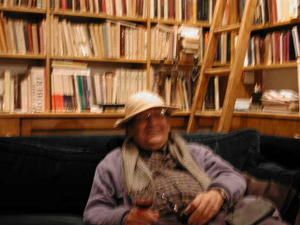 What a strange and wonderful job it is to publish. You can bring out some authors, spread ideas, launch new debates or old refrains. You can sing with the world, create your own little music. Have a look at our photographs, at Marie-Ange LE SAINT’s masks,  read the astonishing improvised speeches of our model lawyers / (which, reading between the lines, paint a broad picture of the function of defence), read the astonishing improvised speeches of our model lawyers / (which, reading between the lines, paint a broad picture of the function of defence),
Gilles VERNERET’s text and Azouz BEGAG’s too, not because he is a minister, but because he is a writer. Hail, citizen reader, it’s your turn to judge. Villeurbanne, 9th October 2006 |